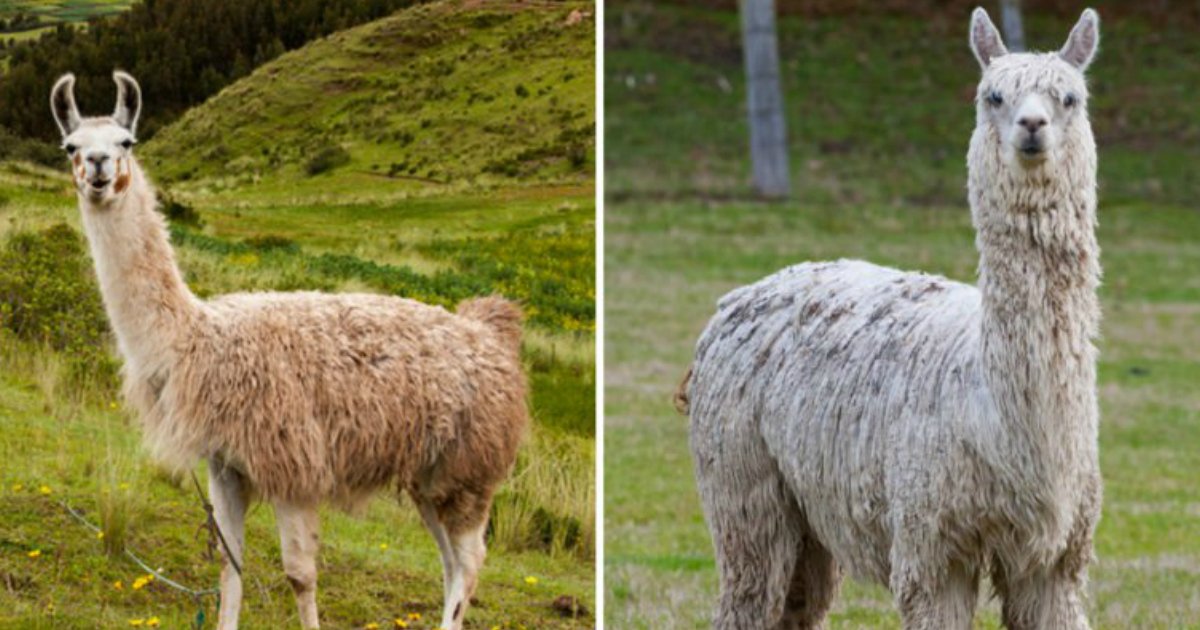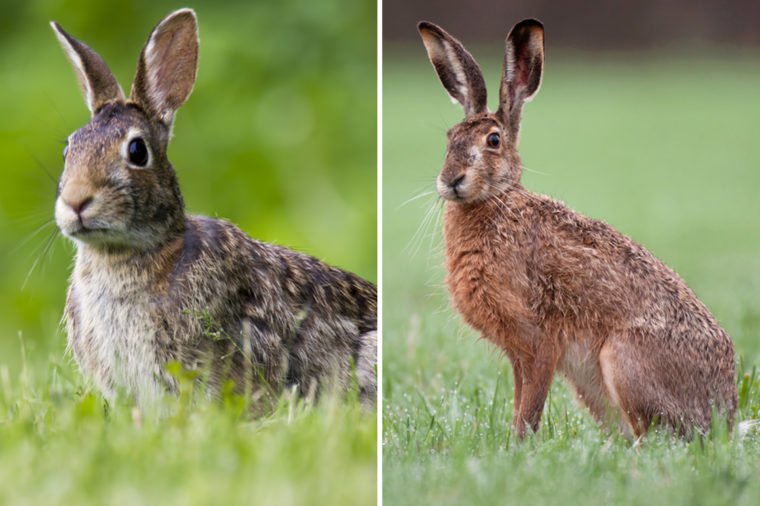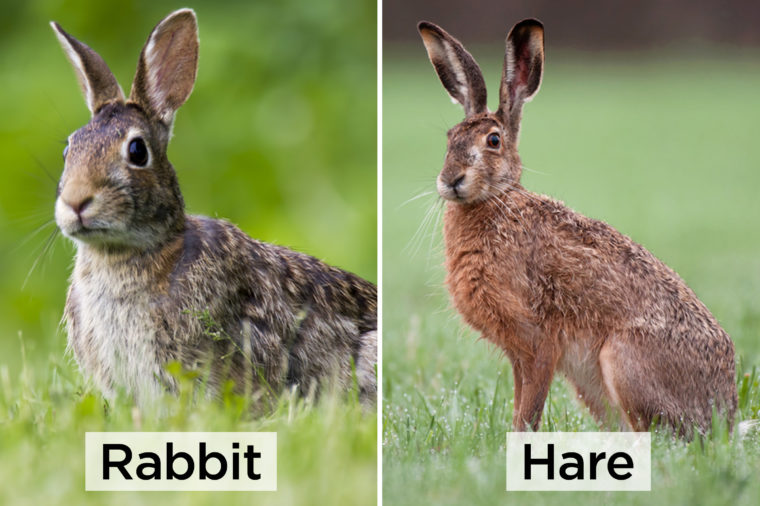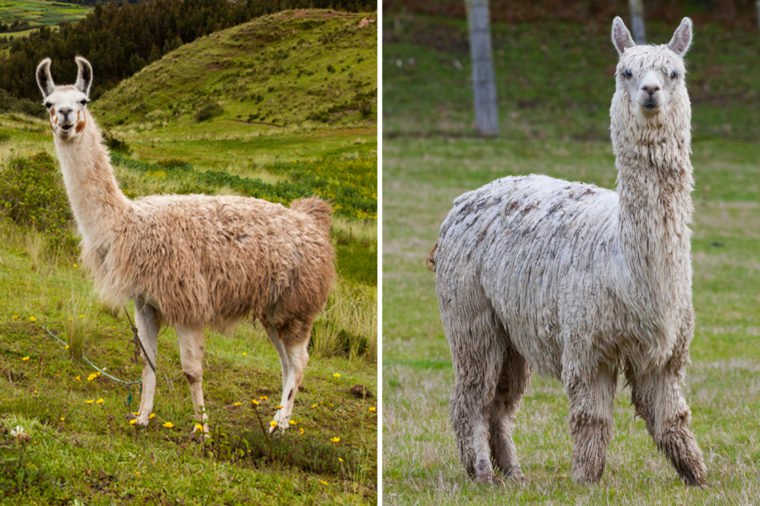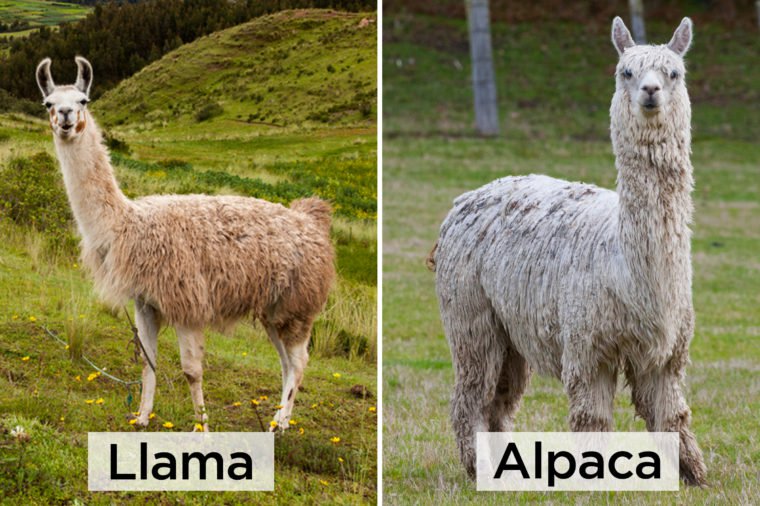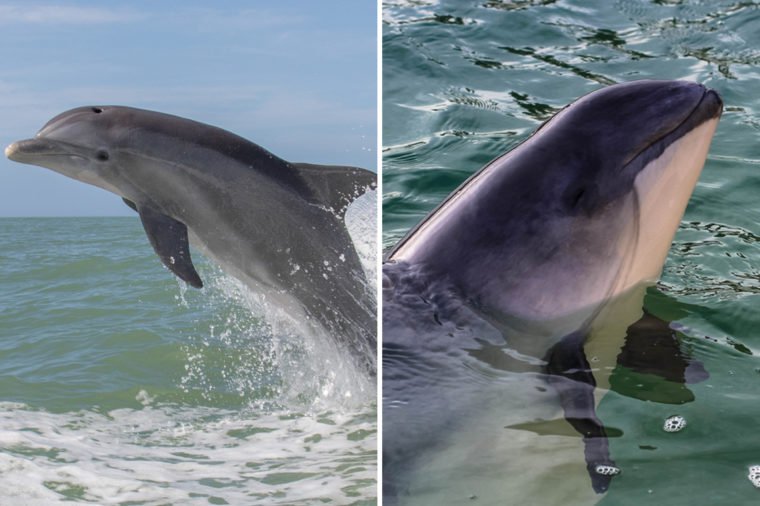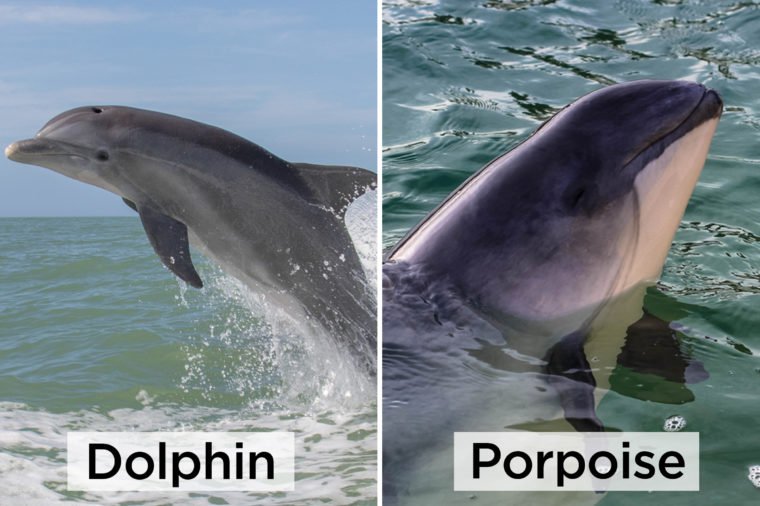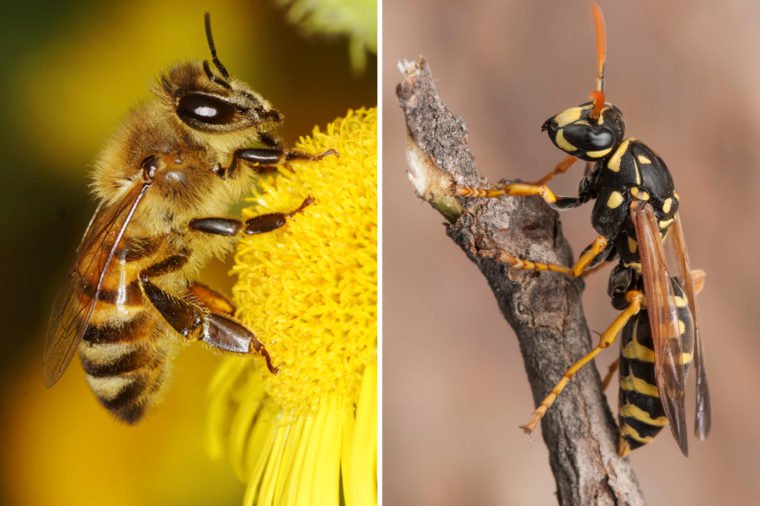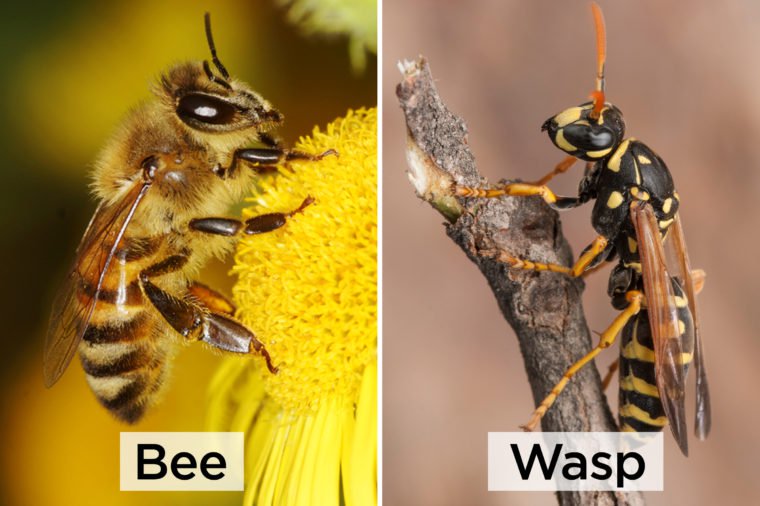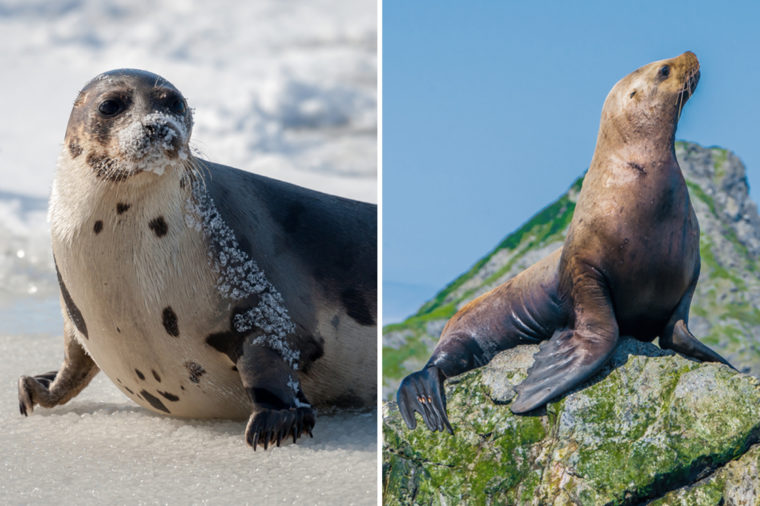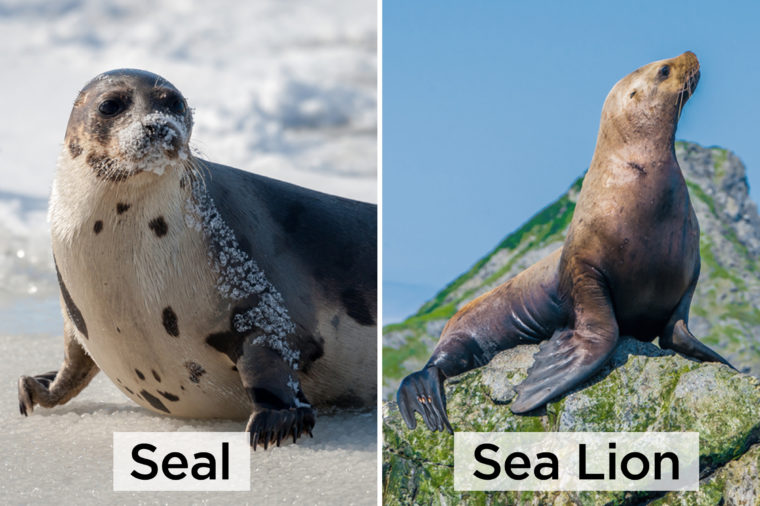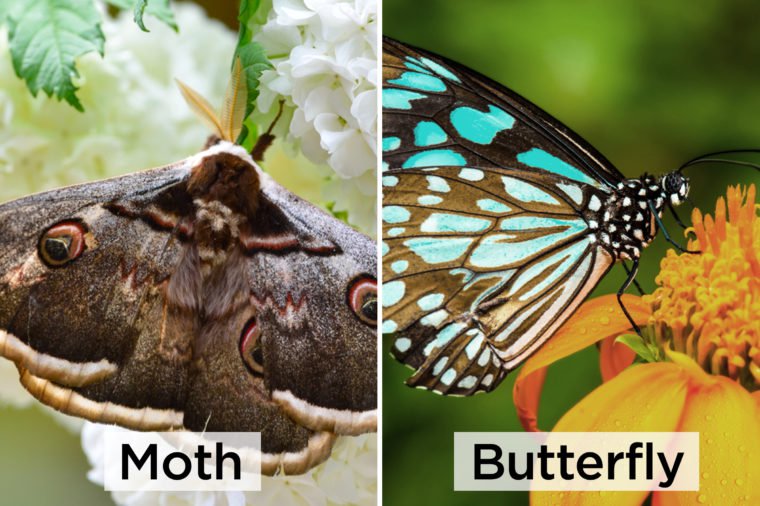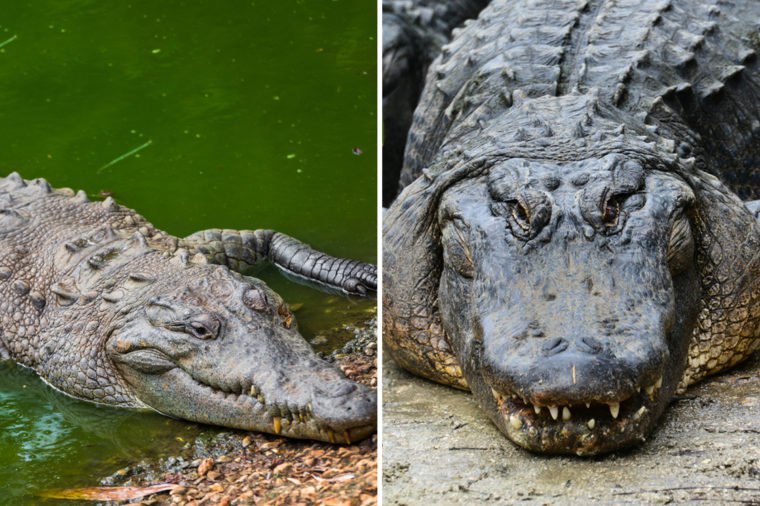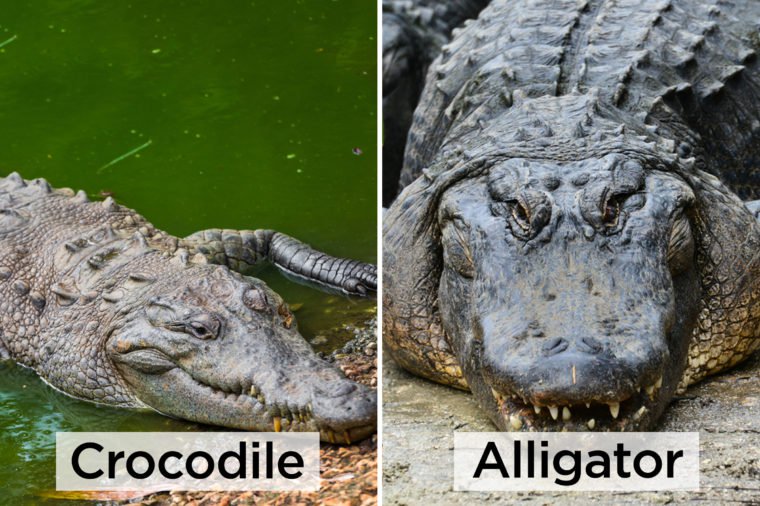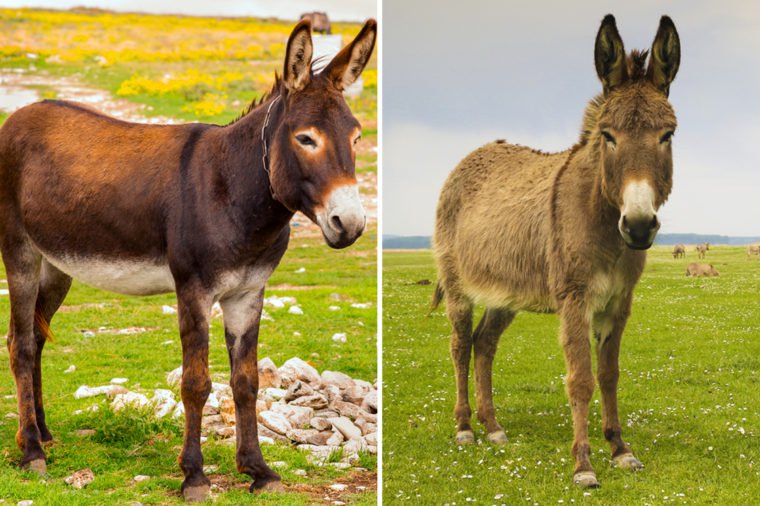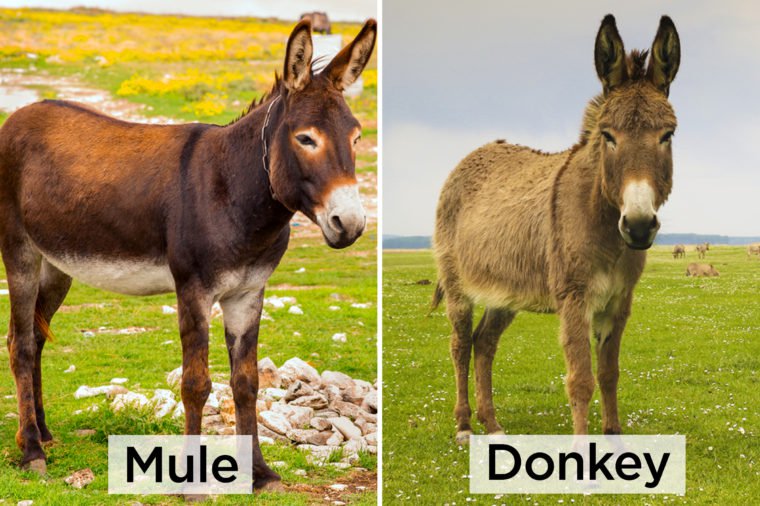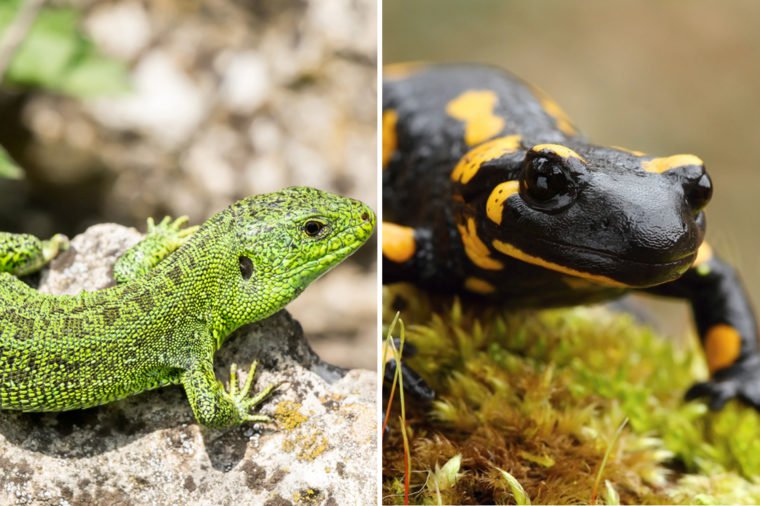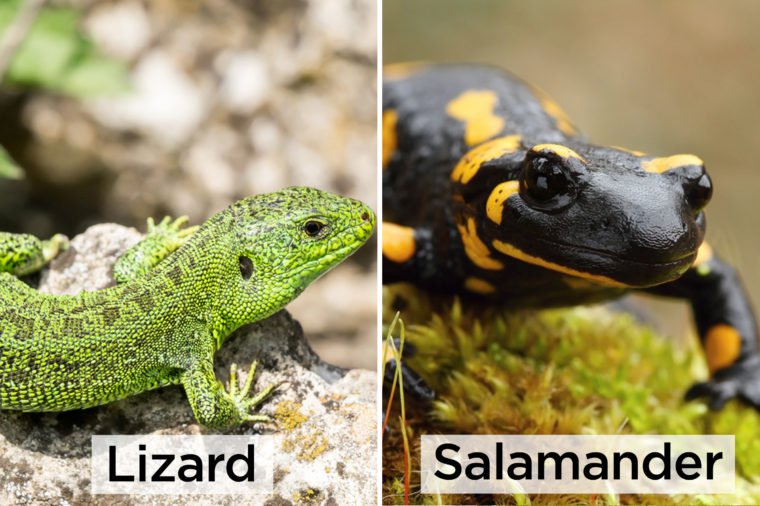There are a few distinct characteristics that set these similar looking animals apart.
Rabbits vs. Hares
Can you tell these two apart? Test your brain more and try to spot the difference in these pictures.
Rabbits vs. Hares
Rabbits and hares are easily confused. Hares tend to be much larger than rabbits and have much bigger feet and longer ears. Hares’ hind legs are stronger than rabbits so they can run much faster and are better at escaping predators. Another distinct difference you can look for is that hares have black markings on their fur.
Llamas vs. Alpacas
Which one is a llama and which one is an alpaca?
Watch out! These innocent looking animals are actually dangerous.
Llamas vs. Alpacas
An easy way to tell the difference between a llama and an alpaca is by looking at their size. Alpacas weigh around 150 pounds, while llamas can weigh up to 400 pounds. Another significant difference between the two animals is their ears. Alpaca ears are short and spear-shaped. Llama ears are much longer and banana-shaped.
Dolphin vs. Porpoise
Can you tell the difference? Next, try to spot the animals camouflaged in these photos.
Dolphin vs. Porpoise
Porpoises and dolphins are two different mammals that people mistake all the time. While they both belong to the aquatic family of Cetacea (along with whales) they are actually very different. The easiest way to distinguish between the two of them is their faces. Dolphins have long noses or “beaks” and cone-shaped teeth, and porpoises have a shorter, rounded nose and spade-shaped teeth. Another difference between the two is their dorsal fin. A dolphin’s dorsal fin is curved and a porpoise’s is triangular shaped.
Bees vs. Wasps
Can you identify a wasp when you see one?
Bees vs. Wasps
Wasps and bees are two insects that look very much alike, but one is very aggressive. Both will sting when attacked, but wasps get aggressive more easily. Bees are hairy and have flat rear legs. Wasps are skinnier, shiny, and have thinner legs.
Seals vs. Sea Lions
Do you know which image is a seal and which is a sea lion? Also, try to guess these animals based on close up pictures of their fur.
Seals vs. Sea Lions
Sea lions and seals are both fin-footed marine animals but differ in a lot of ways. For instance, seals have much smaller front feet with a claw on each toe while sea lions have long skin-covered flippers as their front feet. Another main difference? Their ears. Sea lions have small flap-like ears whereas seals don’t have any external ears. Sea lions are also much louder and more social than seals.
Moths vs. Butterflies
Which is which?
Moths vs. Butterflies
For the most part, moths and butterflies look pretty different. Butterflies tend to be much more colorful and are out during the day around flowers. (Although, some butterflies do look very similar to moths.) An easy way to spot the difference is by looking at the antennae. A butterfly’s antennae are long with a bulb shape on the end, while a moth’s antennae are short and feather-like. You can also compare their wings—butterfly wings fold up and over their back while moth wings fold down and over their abdomen.
Crocodile vs. Alligator
Can you identify an alligator when you see one? Find out about these species of animals that are truly genius.
Crocodile vs. Alligator
If you want to be able to tell the difference between a crocodile and an alligator, just look at their snout. Alligators have a shorter, U-shaped snout whereas a crocodile’s snout is more pointed in a V-shape. Also, when their mouths are closed, crocodile’s teeth will show and an alligator’s won’t.
Mule vs. Donkey
Which of these animals is a mule?
Mule vs. Donkey
Mules are part donkey, but technically they are two different animals. Mules are the result of a female horse mating with a donkey, and have longer ears and taller and larger bodies.
Lizard vs. Salamander
Can you tell the difference?
Lizard vs. Salamander
These two animals might look alike, but lizards are reptiles and salamanders are amphibians. Because salamanders are amphibians, they are typically found closer to water or in cool, moist logs. Lizards tend to stay in places that are dry and warm. Lizards have longer toes and scaly bodies, while salamanders are smooth and have short toes. Lizards also tend to be much bigger than salamanders.


